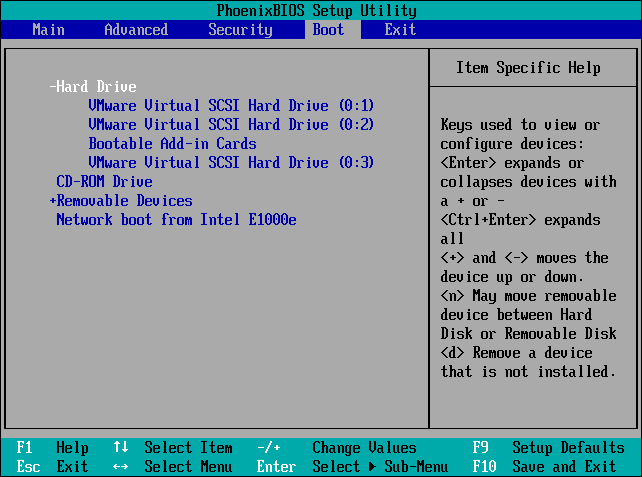How to Transfer Windows 10 from HDD to SSD without Losing Data
Grab the best SSD cloning software for Windows 10 and then follow the stepwise guide to transfer Windows 10 from HDD to SSD without reinstalling OS or losing data. Hurry up and learn.
Can I transfer Windows 10 from HDD to SSD?
“Hi, I made my own PC. I have an HDD and an SSD. When I installed Windows for the first time, it got installed on the HDD instead of the SSD and I have no idea of how to reinstall Windows on my SSD instead of the HDD. My PC is empty only Windows on it, so I don’t mind how it’s done. I just need a way that works!!”
This is user case from Microsoft forum, and you can see similar cases on various forum, such as, reddit, quora, etc. Just like the user in this case, they install Windows 10 on HDD and want to replace HDD with SSD to get better performance. But the problem is that they don't know how to transfer Windows 10 to SSD from HDD?
Of course, this problem may be more severe if the hard drive you want to replace has been in use for a long time. Because it may contain many precious data you don't want to lose, such as, working documents, photos, videos etc. Then, how to make this task easily without losing any data? You could use a disk cloning software to migrate operating system to SSD.

If you want to transfer everything from the old computer to the new computer in the fastest way, read this article carefully. Read more>>
Best HDD to SSD cloning software for Windows 10
To complete the cloning process easily, you need a trust and reliable software. Here I strongly recommend you use the disk cloning software AOMEI Backupper Professional. It supports cloning disk, partition or only OS.
💜 Disk Clone vs. System Clone
You can choose to clone hard drive to SSD in Windows 10, but it's not the best practice. Compared with HDD, SSD has small storage space and it can be full easily, which may also affect the performance. To save cloning time and storage space, you can migrate only Windows 10 to SSD with "System Clone" feature.
💜 Clone hard drive with different size
This software will only clone the used sectors in the hard drive by default, so you can easily clone larger disk to smaller disk or clone smaller disk to larger disk.
💜 Useful clone options
If necessary, you can choose to clone all sectors of a hard drive with "Sector by sector clone" feature. And it is capable of accelerating the reading and writing speed of SSD with "SSD Alignment". In addition, you can adjust partition size of larger destination disk with "Edit Partitions" to make full use of disk space.
Now, you may know this software clearly. Download it at once and learn how to clone Windows 10 hard drive or OS in detail.
Easiest hard drive clone software for Windows PC.
How to move Windows from HDD to SSD (2 ways)
This part offers you two ways to transfer Windows 10 from HDD to SSD without reinstalling OS. Pick one way that best fits your need.
Preparations
Before cloning HDD to SSD in Windows 10, you need to make some preparations:
-
Connect the target SSD to your computer via a SATA-to-USB cable or a hard drive enclosure.
-
Make sure the destination SSD has enough space to store all data. If not, please consider using "Method 2" to migrate only Windows 10 to SSD.
-
Since the destination disk will be overwritten, please backup files on the target hard drive in advance.
-
If you transfer Windows 10 from MBR disk to GPT disk, make sure that the motherboard supports EFI/UEFI. Please change boot mode from BIOS to UEFI when you try to boot from the new SSD.
Method 1: Clone Windows 10 HDD to SSD🔥
Here you will use "Disk Clone" feature to clone the entire disk containing Windows 10.
Step 1. Launch AOMEI Backupper and click on Clone -> Disk Clone in order.
Step 2. Select the Windows 10 system hard drive (eg: Disk 0) and click Next button to continue.
Step 3. Select SSD disk as destination (eg: Disk 1) and click Next button to continue.
Step 4. Tick SSD Alignment to boost the performance of SSD disk. And then click Start Clone to clone HDD to SSD in Windows 10.
Step 5. Wait until the process is complete, and click Finish to exit the window.
Method 2: Transfer Windows 10 OS to SSD👍
Here you will use "System Clone" feature to clone only OS, which can greatly improve the performance of your computer without occupying much disk space.
Note: If the destination disk is too small, you could use SSD for OS and HDD for storage. This makes good use of the advantages of both SSD and HDD, to be specific, high performance and large capacity.
Step 1. Run AOMEI Backupper. Then, click Clone and select System Clone subsequently.
Step 2. The system partition(s) is (are) chosen by default, and what you need to do is choose the SSD you prepared as the destination disk. Click Next.
If the SSD is not empty, you will see a pop-up window to remind you whether you want this progress to continue. Confirm the information and click OK as you have already backed up important files in the preparation stage.
Step 3. In the Operation Summary window, check SSD Alignment to optimize the performance of SSD and prolong its lifespan. Then, click Start Clone. When the progress reaches 100%, click Finish.
Notes:
❤ This software is able to migrate Windows 10 to new hard drive as well as previous version of Windows, such as Windows 7/8, etc. If you want to migrate Windows Server 2012 to new hard drive, AOMEI Backupper Server is suitable for you.
❤ Except for cloning method, you still can choose to create a complete system backup of Windows 10, and then restore system image backup to SSD. This greatly ensures that you can transfer Windows 10 from HDD to SSD without losing data by backing up them first. And it's free.
Tips on booting computer from the cloned hard drive
- Completely shut down your computer. Then, open the back panel or host, and take out HDD using screwdrivers.
- Install the SSD at the location of HDD and secure it tightly.
- Put the computer panel or host cover back.
- Restart your computer and then you will see a message like "Press F2 to enter BIOS setup", just press it.
- Go to the boot tab and change the new SSD as the first boot option. Then, save changes and boot from it. Your computer will start as normal.
Why migrate Windows 10 from HDD to SSD?
You may already know SSD has more advantages over HDD, but not know exactly what they are. Here you will get them in detail.
-
The data on the SSD can be read and written faster because the store way is different with the traditional HDD.
-
The data on SSD is safer than HDD.
-
There is no noise of metal platter spinning.
-
The SSD can work under more serious environment compared with HDD (the SSD can work normal between -10 to 70℃ while HDD can work between 5 to 50℃).
After you move Windows 10 to SSD, the computer’s performance will be improved greatly. It will run faster than before.
More questions about transferring Windows 10 from HDD to SSD
Below are some frequently asked questions about migrating Windows 10 from HDD to SSD, hope it can help you.
1. What is the difference between HDD and SSD?
SSD (Solid State Drive) is also a storage disk which is made of solid state electronic storage chip. Unlike HDD, SSD has no moving parts, and the data is stored on the memory chips (consisting of flash chip and Dynamic Random Access Memory (DRAM) chip). So, there is no platter spinning while the data is read or written on SSD.
2. How to migrate only Windows 10 to SSD?
3. How to migrate large HDD to smaller SSD without boot problem?
Wrapping things up
To transfer Windows 10 from HDD to SSD, you can rely on the best cloning software – AOMEI Backupper. It offers you two ways to transfer Windows from one hard drive to another: clone entire hard drive with "Disk Clone" feature or clone only OS with "System Clone" feature.
If you want to protect unlimited computers within your company, you can pick AOMEI Backupper Technician. With the inbuilt AOMEI Image Deploy tool, you are also allowed to deploy/restore system image file on server-side computer to multiple client-side computers over network.


